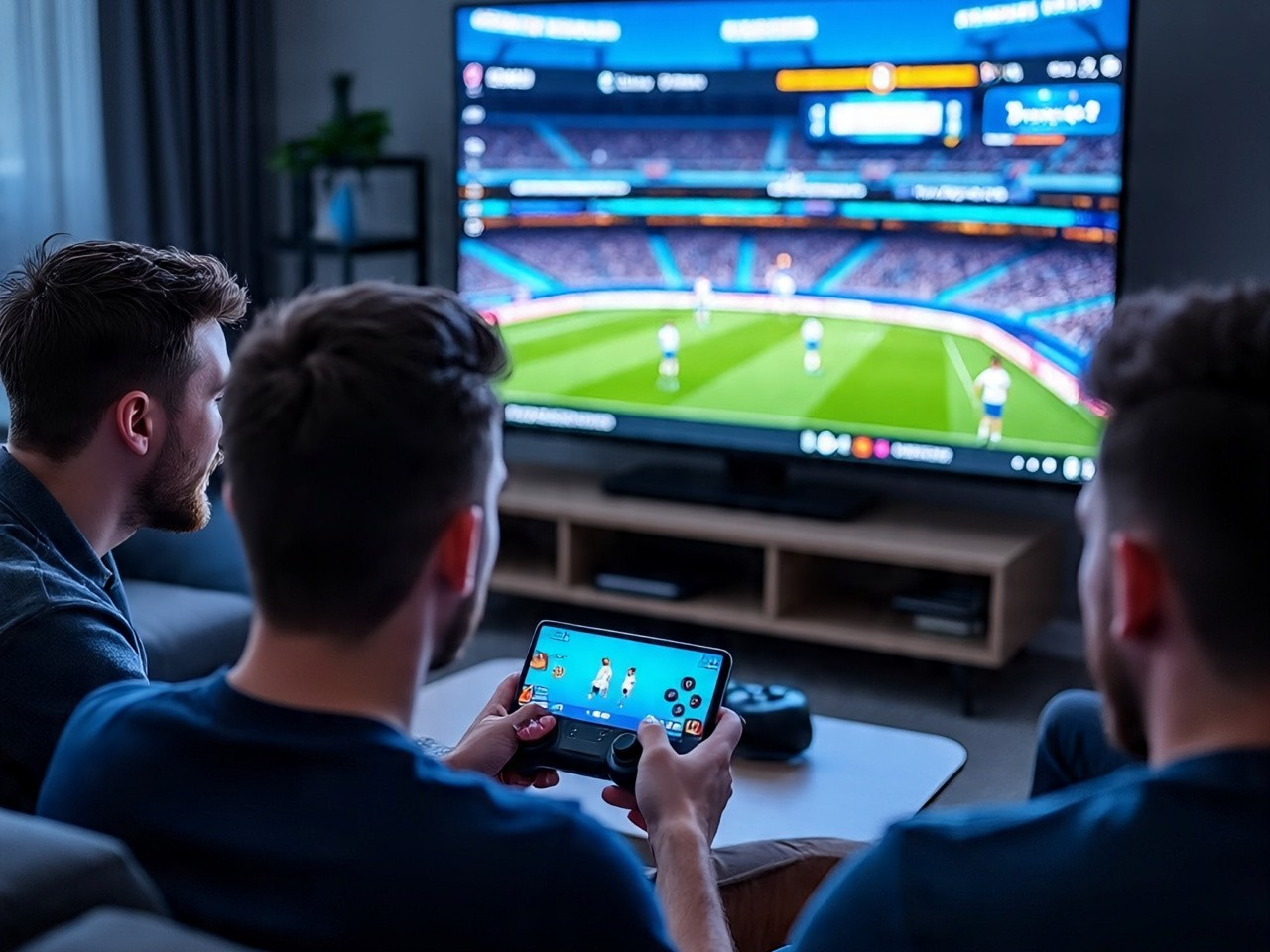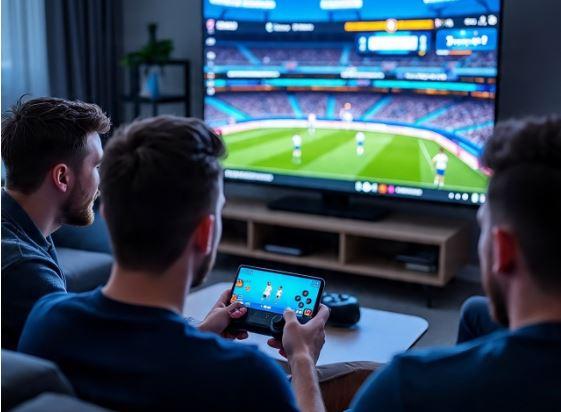In a digital world where distractions are just a click away, building sustainable online habits can feel like swimming against the current. Whether it's gaming, streaming, or just endless scrolling, it’s easy to fall into patterns that are hard to break. That’s where self-discipline becomes essential. It's not about avoiding technology but using it with intention. With more people engaging in various online platforms, understanding the role of self-discipline is key to maintaining balance, avoiding digital burnout, and enhancing overall productivity.
Many online platforms are designed to keep users engaged, often prioritizing attention over wellbeing. Without proper boundaries and internal regulation, it’s simple to lose track of time or develop unproductive behaviors. However, with conscious effort and practical strategies, it’s possible to maintain a healthy digital lifestyle. This article explores how self-discipline acts as the foundation for building and sustaining positive online habits—ones that improve life, not distract from it.

Understanding Self-Discipline in the Digital Age
Self-discipline isn’t about punishment or strict denial. It’s the ability to make decisions that align with long-term goals, even when temptations are high. Online spaces are built to grab attention. Algorithms serve up exactly what the brain craves: entertainment, novelty, and interaction. This creates a loop of instant gratification, which weakens impulse control over time.
In contrast, self-discipline encourages intentional choices. It pushes for using time online purposefully—learning something new, relaxing mindfully, or connecting meaningfully with others. The difference lies in control. Without self-discipline, it's easy to scroll mindlessly or game for hours. But with it, online activity becomes a tool, not a trap.
Cultivating discipline requires recognizing triggers. What causes the urge to check notifications every five minutes? Is it boredom, stress, or just habit? Understanding these cues is the first step toward change. Replacing automatic responses with thoughtful actions slowly rewires digital behavior. Over time, what was once a struggle becomes second nature.
Why Sustainable Online Habits Matter
Sustainability in the digital realm isn't just about limiting screen time—it’s about developing patterns that support mental, emotional, and physical wellbeing. Balanced online habits prevent burnout, enhance focus, and create space for offline life. In contrast, poor digital habits often lead to stress, procrastination, and reduced productivity.
Sustainable habits are those that can be maintained long-term without negative consequences. For instance, setting boundaries on when and how long to engage online, creating tech-free zones, or scheduling breaks. These habits are small but powerful tools that help avoid the endless scroll or all-night gaming marathons.
Without discipline, the brain adapts to a fast-paced, dopamine-driven environment, leading to impatience and decreased attention span. Sustainable habits reverse that process, fostering resilience and better time management. They support healthier relationships, better sleep, and improved self-esteem—all of which are necessary for a well-rounded life, both online and offline.
Practical Strategies to Strengthen Self-Discipline Online
Mastering self-discipline doesn’t require a complete digital detox. Instead, it’s about implementing small, consistent strategies that build mental toughness over time. Here are several effective techniques:
-
Set specific goals: Whether it’s limiting social media use to 30 minutes daily or capping gaming sessions at two hours, clear goals provide direction and accountability.
-
Use digital tools wisely: Timers, focus apps, and screen time trackers can help monitor behavior and reduce impulsive activity.
-
Create routines: Structure builds stability. Set times for online activities and stick to them to avoid overuse.
-
Reward progress: Celebrate small wins, like sticking to a schedule or skipping unnecessary browsing. Positive reinforcement boosts motivation.
-
Reflect regularly: Weekly check-ins help identify what’s working and what needs adjustment. They also reinforce mindfulness around online behavior.
These strategies don’t require perfection. The goal isn’t zero screen time, but meaningful screen time. Self-discipline becomes easier when the purpose behind each habit is clear and personally relevant.
Managing Impulses and Avoiding Instant Gratification
Online platforms thrive on instant gratification. A like, a win, or a notification delivers quick dopamine hits that reinforce engagement. This feedback loop makes it hard to resist urges, especially in unstructured or emotionally vulnerable moments.
To manage impulses, it’s important to introduce delays. For example, before opening an app, pause and ask: “Do I need this right now?” This simple question introduces awareness, breaking the automatic behavior cycle. Delaying gratification—even by a minute—gives the brain space to make a better choice.
Another technique is the “10-minute rule.” If the urge to check a platform or play online games hits, wait 10 minutes. Often, the urge passes, or the reason behind it becomes clearer. Over time, this builds mental resistance and enhances control over digital impulses.
Mindfulness practices can also help. Deep breathing, brief meditations, or even journaling can redirect attention and calm the need for instant rewards. Building a tolerance for discomfort strengthens discipline and fosters healthier, more intentional habits.
Building Healthy Online Routines
Habits are easier to maintain when they’re tied to a routine. Rather than relying on willpower alone, structure makes discipline more automatic. Establishing a digital schedule brings predictability, reducing the temptation to overindulge.
A healthy routine might include:
-
Morning tech-free time to focus on planning or mindfulness
-
Designated work/study hours with minimal digital distraction
-
Scheduled leisure sessions for gaming or entertainment
-
Evening wind-down routines that limit screen exposure
Keeping a consistent sleep schedule is especially important. Blue light from screens interferes with melatonin production, affecting sleep quality. Turning off devices an hour before bed promotes better rest and helps reset the brain for the next day.
Routine doesn’t mean rigidity. It allows for flexibility and spontaneity within limits. The key is to define intentional time for digital engagement instead of letting it dominate by default.
Staying Accountable with Support Systems
Accountability boosts motivation and keeps discipline on track. While personal effort is important, sharing goals with others adds an external layer of responsibility. Friends, mentors, or online communities can offer encouragement and perspective.
Tracking progress in a journal or through apps can provide visual reminders of growth. Even small check-ins—like reviewing time spent online—build awareness. Some people find success by committing publicly to their goals, creating social accountability.
Another effective method is using rewards and consequences. Set clear outcomes: If a goal is met, enjoy a treat or leisure activity. If not, skip something enjoyable or add a small challenge. These motivators encourage follow-through and consistency.
Ultimately, accountability should feel supportive, not punitive. It’s about fostering growth and helping maintain focus in a world full of distractions.
Balancing Leisure and Productivity Online
Not all online time needs to be productive. Leisure is valuable—when it’s intentional. Whether it’s playing games, watching videos, or chatting with friends, these activities provide relaxation and connection. The issue arises when leisure turns into avoidance.
Striking the right balance starts with honest self-evaluation. Ask: “Am I enjoying this, or escaping something else?” If leisure becomes a crutch, it’s time to reevaluate its role in the daily routine.
Designating “guilt-free” time for entertainment creates space for enjoyment without anxiety. This balance helps avoid the binge-regret cycle, where overindulgence leads to shame, then more avoidance.
Remember, balance isn’t a 50/50 split. It’s about creating a rhythm that fits individual goals and lifestyles. Sometimes, a few hours of gaming is just what’s needed. Other times, focusing on personal growth or creative projects brings more satisfaction. Self-discipline enables that choice.
Digital Minimalism: Simplify to Stay Disciplined
Digital minimalism is the practice of intentionally curating the online environment to reduce distractions. It’s not about cutting off technology but streamlining it to support what truly matters.
This can look like:
-
Unsubscribing from unnecessary emails
-
Deleting apps that don’t add value
-
Turning off non-essential notifications
-
Organizing the desktop or homepage for focus
A cleaner digital space reduces mental clutter, making it easier to stay disciplined. With fewer options begging for attention, it becomes simpler to concentrate on meaningful tasks or intentional leisure.
Digital minimalism also encourages periodic detoxes—short breaks to reset and reassess digital habits. These pauses foster clarity and reinforce control, making long-term self-discipline more achievable.
The Link Between Online Habits and Mental Health
The way time is spent online has a direct impact on mental health. Overuse can lead to anxiety, depression, and social isolation, while intentional use promotes learning, creativity, and connection.
Self-discipline acts as a protective barrier, helping maintain a positive mental state. By setting boundaries and staying aware of emotional triggers, it becomes possible to enjoy the digital world without being consumed by it.
Recognizing when online activity is harming mental health is crucial. Signs like sleep disturbance, mood swings, or constant restlessness may signal that it’s time to step back and reassess. Building healthier habits protects both mental clarity and emotional wellbeing.
Final Thoughts
Self-discipline isn’t about restriction—it’s about empowerment. In a world full of digital noise, it offers the clarity and control needed to build sustainable online habits. By setting clear boundaries, embracing intentional routines, and staying mindful of digital behaviors, it’s possible to transform the way time is spent online. The key is consistency. Small, daily efforts compound over time, leading to lasting change and a healthier relationship with technology.
So, the next time the urge to scroll, click, or game endlessly strikes, take a breath. Choose action over impulse. Let self-discipline be the quiet strength that guides every digital decision.
FAQs
1. What is the first step to developing better online habits?
Start by tracking current behavior. Understanding when, how, and why time is spent online creates the foundation for change. From there, introduce small boundaries and build gradually.
2. How long does it take to build self-discipline online?
Consistency over time is key. Most people notice improvement within a few weeks, but it can take several months to fully embed new habits.
3. Can online gaming be part of a healthy routine?
Yes, when done in moderation and with set limits. The key is to ensure gaming doesn’t interfere with sleep, work, or social relationships.
4. What apps help improve self-discipline?
Focus Keeper, Freedom, Forest, and RescueTime are popular tools for managing screen time, blocking distractions, and tracking digital habits.
5. How does 카지노사이트 추천 relate to self-discipline?
Seeking trusted platforms like those found through 카지노사이트 추천 requires self-discipline to engage responsibly. Choosing where and how to spend time online plays a critical role in sustaining healthy habits.



